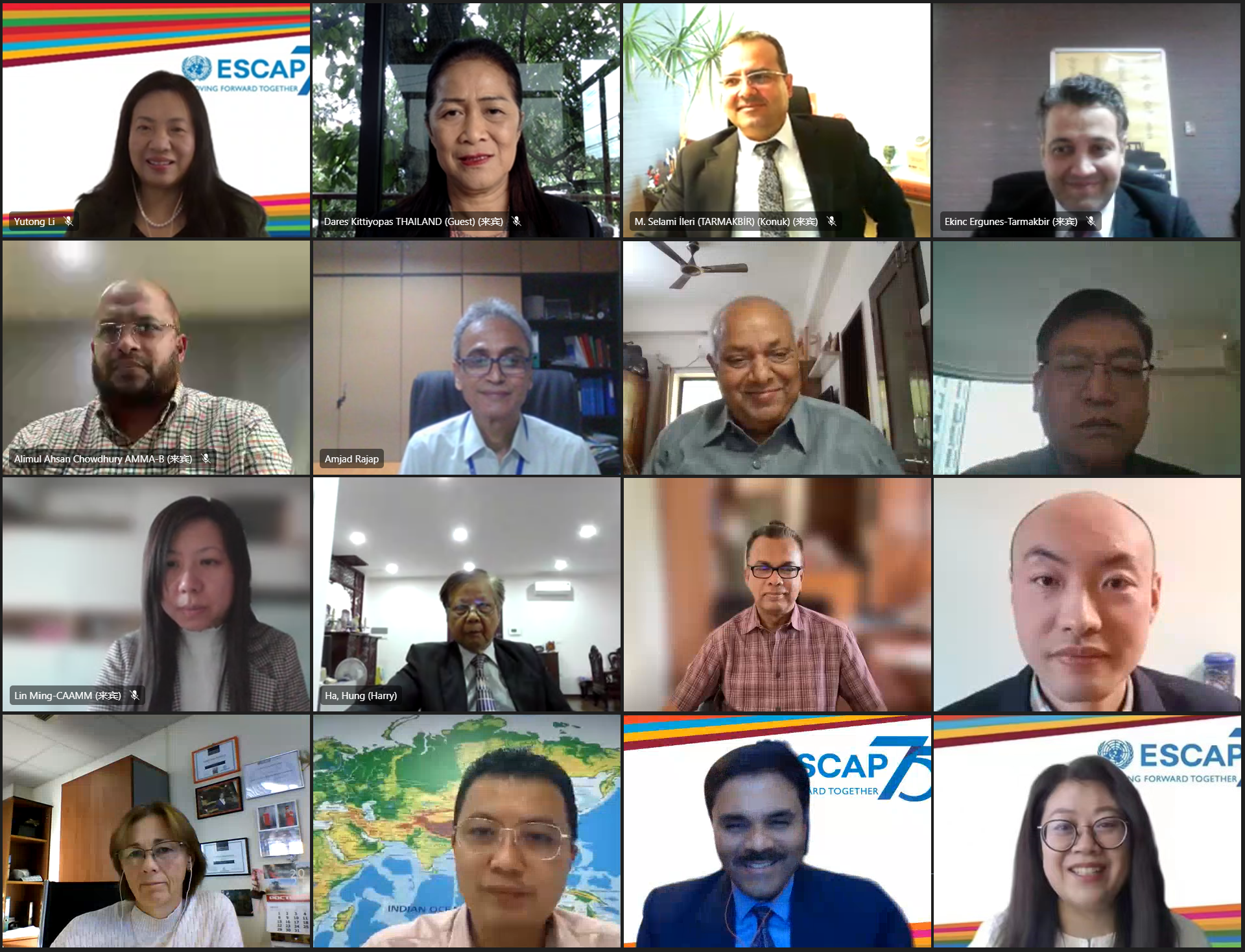CSAM Convenes 8th Member Meeting of ReCAMA Network

01 December 2022: The Centre for Sustainable Agricultural Mechanization (CSAM) of the United Nations Economic and Social Commission for Asia and the Pacific (ESCAP) brought together members of the Regional Council of Agricultural Machinery Associations in Asia and the Pacific (ReCAMA) for the 8th Member Meeting of the network held virtually today.
ReCAMA is a flagship initiative of CSAM with the aim to promote sustainable agricultural mechanization in the region through strengthening the capacity of national agricultural machinery associations, facilitating the exchange of knowledge and information, and enhancing collaboration and closer business connections among national associations and their members. A Member Meeting of ReCAMA is convened annually to discuss and endorse the work report of the year and the work plan for the coming year as well as to identify potential new areas for cooperation among the members.

The 8th Member Meeting of ReCAMA was opened by Dr. Yutong Li, Head of CSAM and Ms. Dares Kittiyopas, President of the Thai Society of Agricultural Engineering as the current Chair Association of ReCAMA.

The Turkish Association of Agricultural Machinery & Equipment Manufacturers, and the Agricultural Machinery Manufacturer Association of Bangladesh, were elected as the Chair Association and Vice Chair Association of ReCAMA respectively for the year 2022-2023.
The members endorsed the work report of ReCAMA for 2022 and the proposed work plan for 2023, and agreed to enhance cooperation, for instance in sharing information and data on the agricultural machinery industry among the members.
Speaking on the occasion, Dr. Yutong Li, Head of CSAM, highlighted that through its various activities including research and analytical work, capacity building, visits to exhibitions and business matching events, ReCAMA “can play an even bigger role in promoting sustainable agricultural mechanization and regional trade and investment in the Asia-Pacific region.”
Based on its positive outcomes, ReCAMA was cited by the United Nations Office for South-South Cooperation as a ‘Good Practice in South-South and Triangular Cooperation for Sustainable Development’ in its global publication in 2020.
